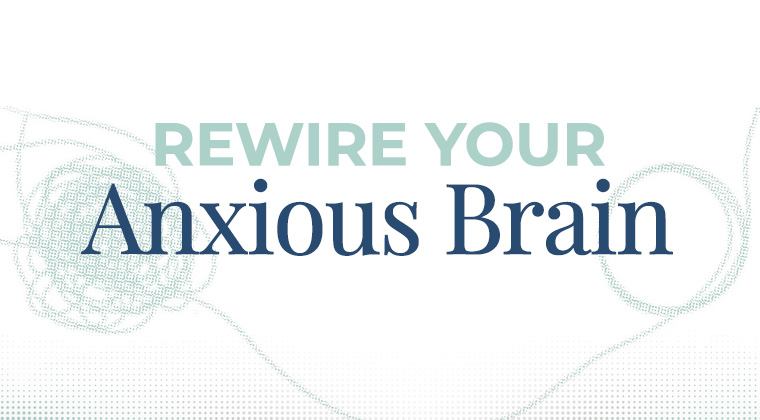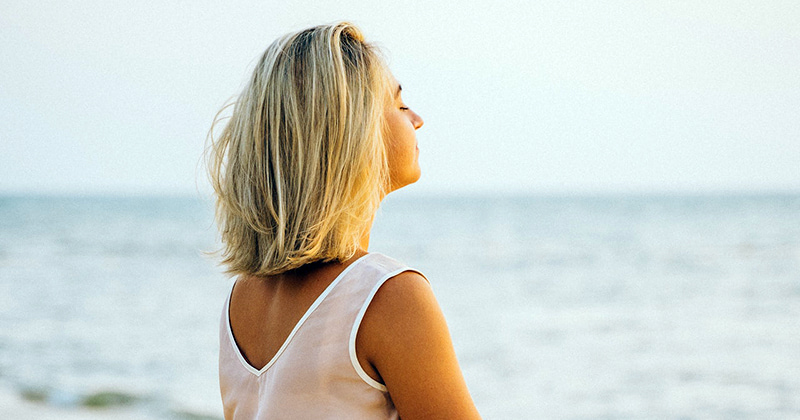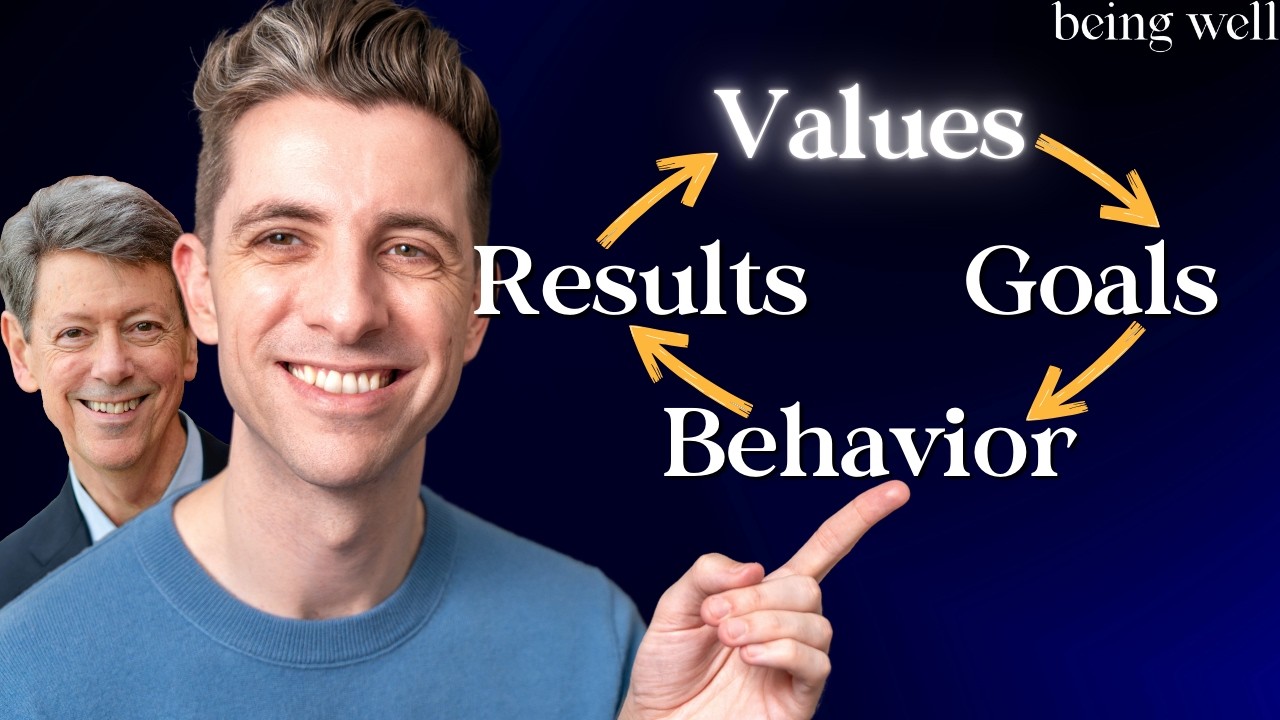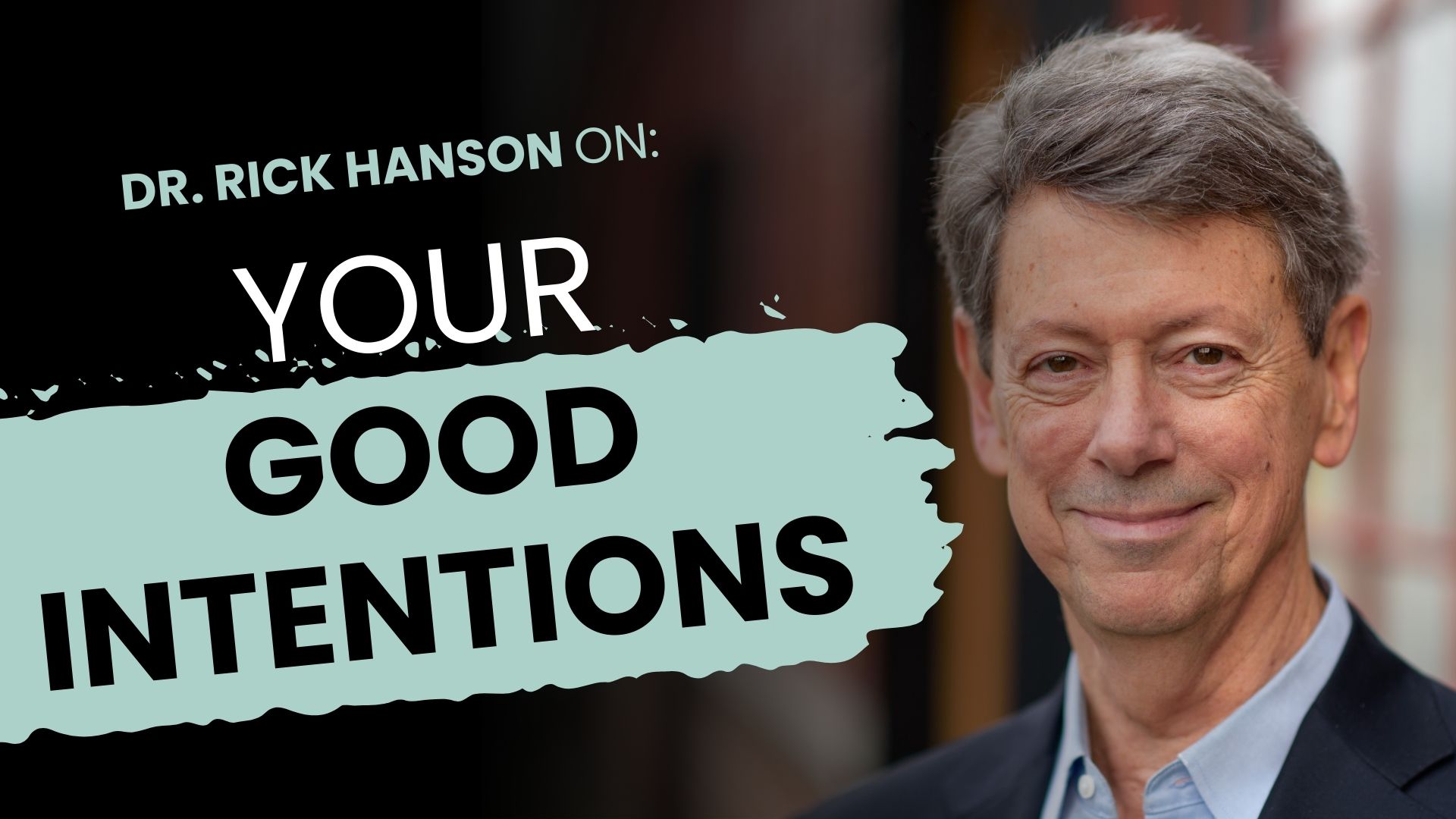During times like this, it’s natural to feel afraid, anxious, or threatened. The brain has evolved to react quickly to threats, and it’s easy for there to be a sense of helplessness associated with problems that appear far beyond our control.
But being consumed by fear causes wear and tear on the body, which actually undermines your safety. That’s why it’s so important to look for ways to be effective and express our agency, even if it’s only through how we choose to think about things.
Below are suggestions and resources for how to do just that during COVID-19 and other challenging times. Please share this page widely. These resources are free for all.
A Message from Dr. Rick Hanson
A Meditation for Feeling as Safe as You Reasonably Can
FOR HEALTHCARE PROVIDERS:
A Meditation on Calm Strength
PODCAST EPISODE:
Fear in the Time of Coronavirus
COVID-19 Vaccination: Q&A
Where do you get your information on the COVID-19 Vaccination, and what is your general stance/opinion on those who do/don't get the vaccine?
I get my information from mainstream public health experts, not pharmaceutical companies (whose effects on our politics I generally despise). I’m deeply embedded in holistic health. We chose not to give our infant children massive bursts of multiple vaccines. I’m reflexively suspicious of the medical establishment. I also get my information from the obvious results of vaccine-hesitancy or -resistance in various states in America compared to other states – or countries – with much higher rates of vaccinations.
Being vaccinated dramatically reduces the risk of being infected at all by COVID – so in that way it reduces the risks of transmission. Further, even if a vaccinated person gets infected, being vaccinated usually shortens the time that the virus is active in their body, and thus the duration of their infectiousness compared to that of an unvaccinated person who got COVID – thus reducing the risks of transmission to an even greater extent.
The vaccine does not prevent all transmission. But that is not its primary purpose, which is to prevent hospitalization and death. Reducing the risk of transmission is just one reason, from both a personal and a public health perspective, for encouraging people to get vaccinated.
I understand people who have friends who were vaccinated and had a miserable month afterwards, while also knowing other people who got COVID and breezed through it: it’s confusing! The side effects of the vaccine can be intense for some people. Vaccine-hesitant or -resistant people can understandably dislike the pressure on them to get vaccinated. I get all this.
And – as big as these costs are: put them next to the nearly 700,000 Americans who’ve been killed by COVID so far (as of mid-September, 2021), 100,000 of whom were eligible for the vaccine but did not take it. They pale by comparison.
If someone has gotten vaccinated, they’ve already done a lot to reduce the likelihood that they will be the pathway of COVID harms to others, including through burdening the healthcare system (and I agree, they should continue to wear a mask sometimes, etc.).
But if a person chooses not to get vaccinated and thus chooses to carry a much higher likelihood of being a pathway of harms to others, then it’s morally incumbent on that person to be extra careful – which is all I said. Yes, I recognize the implication: If person behaves recklessly with regard to COVID and harms others as a result, they should indeed be ashamed of themselves, much as people who get drunk and then drive and injure others should be ashamed of themselves.
What’s primarily fueling the divide and hate these days is not people like me who are relaying the advice of most public health experts. What’s actually fueling it is an increasingly politicized rejection of the notion of the common good, a cultic immersion in junk science, and a hypocritical waving of the flag of personal freedom while trying to outlaw the freedom of a woman to terminate an unwanted pregnancy.
I understand someone not wanting the vaccine for themselves. I know people who have made this choice, and appreciate that they are taking moral responsibility for it.
But at the public policy level, the evidence is overwhelmingly clear that the harms of vaccine-hesitancy and -resistance are much much worse than the harms of getting vaccinated.
What are your most recent thoughts about the COVID-19 vaccine? I'm concerned that those who support it are doing so out of their own fear and anxiety.
I think that what I’ve written previously as well as related additional pieces have turned out to be true. The risks from getting and then potentially transmitting COVID are much, much greater than the risks of the vaccine.
For example, over 100,000 Americans have died from COVID who were eligible for the vaccine but did not take it. As a matter of individual choice, a person may decide not to take the vaccine for medical or other reasons. Then, as a matter of moral duty to others, that person needs to be very careful not to get and transmit this frequently deadly illness.
I have no disrespect for people making that choice as long as they do not harm others, including by burdening the medical system with a preventable illness.
As a matter of public policy, we could let COVID run its course – which would kill about 1% of the population, put several more percent in the hospital, and afflict another 10% or more with Long COVID . . . all while overwhelming the healthcare system and thus killing or otherwise harming even more people. The alternative to this dreary prospect is either strenuous public health measures (i.e., masking, distancing, lockdowns) with their enormous personal and economic costs, or vaccinations and treatments.
I’ve heard that it’s disrespectful to encourage people to get the vaccine, and it’s fear-mongering that must come from deep personal anxiety.
Well, people who know that a hurricane is coming should be afraid of its effects. But it’s not because they’re pathologically anxious that they board up their windows and encourage others to do the same. Dismissing their concerns as merely due to a psychological issue is truly disrespectful – particularly when those concerns have turned out to be entirely justified, as we pick our way amidst the rubble of the COVID storm while it continues to rage.
In face, the primary fear-mongers over the past year have been those who have opposed vaccinations, sometimes by over-selling various “treatments” as alternatives to them (of course, we need a combination of vaccinations and effective treatments). The result over the past six months has been a runaway surge of cases, hospitalizations, and deaths in the US compared to all other developed countries.
The FDA has recently given full standard authorization for the Pfizer vaccine, which will likely soon follow for the Moderna and other vaccines (previously there was an emergency use authorization for the same vaccines). For most people, these vaccines are extremely safe and extremely effective against hospitalization and death from COVID.
Of course, vaccines are not perfect. For example, if you were given the oral polio vaccine, there was about a one-in-a-million chance that you’d develop polio as a result; we should of course have compassion and help for that rare person while recognizing that, as a matter of public policy, it’s good to mandate the polio vaccine in general. Similarly, we can support the tiny fraction of people who develop lasting side effects from the vaccine while also recognizing that vastly more people will be harmed, often fatally, until we have widespread vaccinations against this plague.
What do you think about getting vaccinated against Covid-19? I’ve heard different things, and I fear for the future for my children and grandchildren.
I am offering my personal opinion here about general matters of public health, and not giving medical advice about any individual situation. You should talk with a physician if you have specific questions about your own health.
I have gotten a lot of value from holistic health practices. I’m concerned about the potential impact of multiple vaccinations delivered all at once to particularly vulnerable infants, and I’m skeptical of the profit motives of large pharmaceutical companies. I understand why people could have reservations about covid vaccines.
That said, I have received the vaccine myself and am very glad about it. Covid-19 is deadly for many: as of mid-February, it’s killed nearly 500,000 people in America and over 2,400,000 people worldwide. And it causes lingering health problems for 1 in 8 of those it does not kill.
Covid-19 is an extremely infectious and dangerous plague. So it’s remarkable that the Pfizer/Moderna vaccine prevents virtually everyone who gets it from dying or needing to be hospitalized. And about 95% of the people who receive it will likely not experience any Covid-19 symptoms at all (as long as the body’s immune system remains active against this virus). This is the main purpose of the vaccine – keep people from dying or needing to be hospitalized – and in terms of that purpose, it is very very successful.
By protecting ourselves, we increase the protection of others. Without widespread vaccination, what’s the alternative plan? Stay hunkered down for another year or two while this plague slowly spreads to infect 80-90% of us as we develop “herd immunity?”
This approach would continue to disrupt people’s jobs and lives while leading to the deaths of roughly 1% of us, with higher percentages in middle-aged and older people. That’s about 2-3 million Americans – and many more worldwide. Meanwhile, the virus would have opportunities to mutate and get even more infectious and deadly.
In terms of potential side effects, 35,000 people participated in the trials that tested the vaccine, and there were very few serious side effects. Over a long period, in the millions of people who will get the vaccine, it is possible that a tiny percentage of them will develop serious side effects. Someone who is elderly and frail, or who has a very weak immune system, might weigh the risks and make a reasonable choice not to get the vaccine, while staying extremely covid-safe meanwhile.
But in most cases: The risks to oneself in getting the vaccine are much, much less than the risks to oneself and to others of not getting it.
We humans are one single tribe. We breathe together, we touch each other, and we live and die together. We balance individual choices with the common good.
I, too, have children (though not yet grandchildren, darn). Our children and grandchildren are facing much greater challenges than receiving a proven and life-saving vaccine against a terrible plague that is even now spreading invisibly among us. And despite these challenges, I am very hopeful about the world that these young people will mend and make together.
But the vaccine does not prevent transmission of covid to others.
Yes, some people who have been vaccinated might still acquire some “viral load” that would enable them to transmit the virus to others. This is a possibility that is being actively studied, and a key reason why vaccinated people should still wear a mask.
Nonetheless, this possibility is not itself a reason not to get the vaccine to prevent yourself from becoming seriously ill or even just mildly sick. And as fewer people get covid, that will naturally reduce the transmission of it.
The fundamental purpose of the vaccine is to prevent people from becoming very ill, needing hospitalization, and potentially dying. This is how we should judge it (and as a bonus, it prevents any illness at all in over 90% of people). In terms of this purpose, the vaccine is remarkably effective as well as very safe for almost every person.
Putting it plainly, if hypothetically all Americans had been vaccinated by the end of February, 2021, 500,000 of them would not have died of Covid-19.
But this is not really a vaccine.
The “mRNA” from Pfizer and Moderna prompts the body’s immune system to learn a “signature” of the virus – the molecular shape of its spike – and develop powerful antibodies and other defenses against it. Basically, this is the RNA that makes the spike on the virus . . . so when it goes into the body, our own cells start making just the spike of the virus on their outer surfaces (not the whole virus, whew), which then the immune system detects and starts building defenses for. It acts like a vaccine which is why scientists call it a vaccine (distinct from a “treatment”). In any case, what people call this is not relevant to whether it works (it does).
But Pfizer and Moderna did not complete all their safety trials. And we don’t know the long-term risks of the vaccine.
Those companies did complete Phase 3 with strong indications of safety, and – since we are in an emergency – they received an “emergency use authorization” to make their vaccines available. With every passing day as more people get vaccinated, we are able to see whether there are actually significant and widespread side effects . . . and there are not.
Yes, we do not know the side effects a year or ten from now from taking the vaccine. But there are no reasons so far to think that there will be serious side effects for any more than a tiny, tiny percentage of people.
Meanwhile, I think we need to stay focused on comparing the possible side effects of the vaccine to the known “side effects” of covid, which are often serious lingering illness if not death.
What about a healthy lifestyle as an alternative to the vaccine?
Preexisting health conditions such as obesity that might be reversible with a healthier lifestyle do increase the risk of serious illness from covid, so in that sense a healthier lifestyle would be preventative. But for a reasonably healthy person, there is no evidence that anything other than making sure they’ve got good vitamin D levels would reduce covid risk . . . and thus reduce the spread of this plague without a vaccine. People can of course both maintain a healthy lifestyle and get vaccinated against a dangerous disease.
For our health, we need to emphasize living in harmony with nature, get back to organic and regenerative agriculture, and eat better and live more simply.
I think what you’re saying is deeply true, and we humans in the past several centuries and especially past several decades have been violating it . . . to our peril and that of generations to come. Meanwhile, while we are waiting for humanity to change course, we have to deal with a plague that is burning down our house. Plus, this disease still kills or harms people who live in the more harmonious ways you are describing.
I don’t want to be forced to have something injected into my body.
No one is forcing anyone to be vaccinated. This is not happening. Consequently, this concern is not relevant to whether someone should get the vaccine these days.
The ethical and policy issues involved in mandating certain personal behaviors (e.g., requiring children to show proof of vaccination to enter public school) are complicated, for sure. I’d certainly be opposed to forcing people to get the covid vaccine.
But let’s get real about this: as more and more people get vaccinated – who bear the risk of usually mild though unpleasant side effects – this will slow the spread of covid to unvaccinated people and it will slow the rate of dangerous mutations for everyone. Meanwhile, those who do not get vaccinated are not facing the risk of those side effects, and therefore they are in some sense “freeloading” on those who do.
Big Pharma and Wall Street are making lots of money from the vaccine.
That’s true. It costs a lot of money to develop a vaccine and companies need to make money to do that. Still, it’s clear that Big Pharma and Wall Street have way too much political power, and I’m all for greater regulation of them to benefit the vast majority of people. But those points and large critiques of capitalism are not relevant to whether someone should get vaccinated against this serious and infectious illness.
More broadly, you can see that a lot of the “reasons” against getting the covid vaccine actually have nothing to do with the vaccine itself.
How can we trust sources of information about the vaccines?
That’s a vital question.
For example, a reader wondered about my reference to an article from the Center for Infectious Disease Research and Policy (CIDRAP) at the University of Minnesota, and the relationship of that institute to one of its major donors, who has ties to the broadcast industry.
The online article from CIDRAP is from an institute at a major public university, and it summarizes widely available research.
There are thousands of comparable organizations worldwide (within governments and at universities, large hospitals, and NGOs) grounded in science, and they are all saying essentially the same thing: the Pfizer/Moderna vaccines prevent most hospitalizations and deaths from Covid-19.
The nature of science is that it’s competitive and proceeds through criticizing previous findings, so if there were significant peer-reviewed evidence to the contrary, we would know about it. The fact that there is general consensus across these many organizations provides a lot of credibility.
As to big donors to CIDRAP and comparable organizations, they may have some clout, but in any case: the article itself in question is consistent with the general scientific and public health consensus. So any undue influence is not a factor here.
There is a lot of disinformation out there. Bottom-line, as individuals we routinely have to make choices that have risks on both sides: risks of doing and risks of not-doing. We usually do not have direct knowledge of exactly what those risks are, so we must rely on other sources of expertise.
Often these days, one cluster of sources involves most scientists, most if not all major scientific, academic, and medical institutions, major news outlets (e.g., BBC, Los Angeles Times) that vet their reporting, scientific journals, Wikipedia, etc. . . . . . . . . with the other cluster consisting of sources like Alex Jones, Q-Anon, right-wing conspiracy websites, talk radio hosts, a handful of scientists with no academic standing, eccentrics on Facebook, and people just passing along things they’ve heard. When this is the choice, I know who I am going to rely on for expertise.
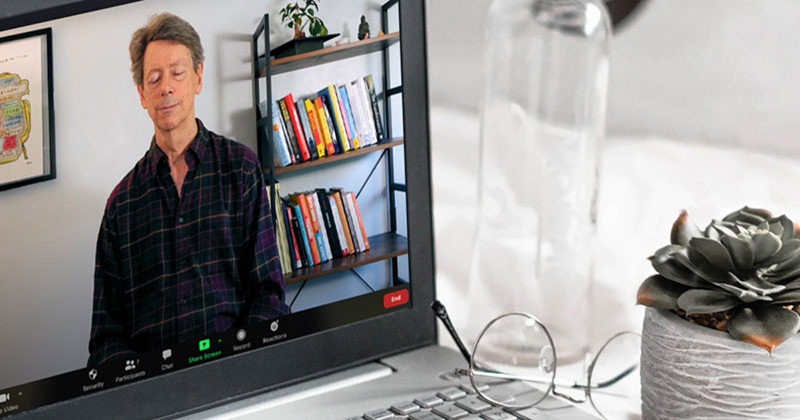
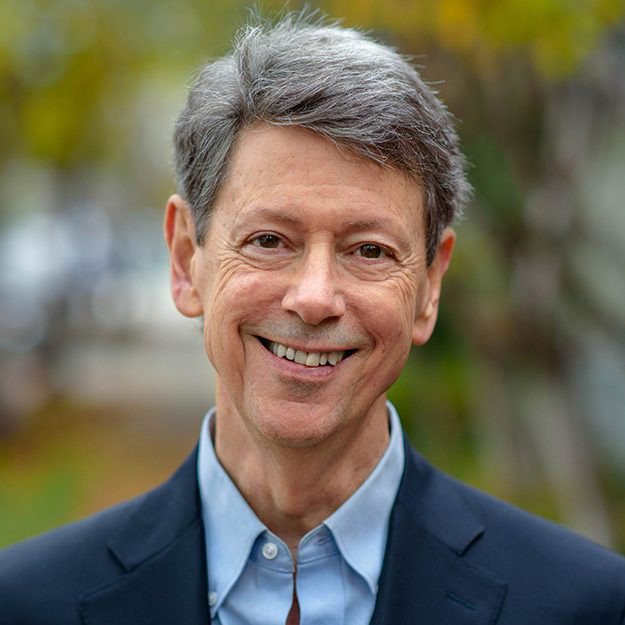
Rick Hanson, Ph.D. is a psychologist, Senior Fellow at UC Berkeley’s Greater Good Science Center, and New York Times best-selling author. His seven books have been published in 33 languages and include Making Great Relationships, Neurodharma, Resilient, Hardwiring Happiness, Just One Thing, Buddha’s Brain, and Mother Nurture – with over a million copies in English alone. He's the founder of the Global Compassion Coalition and the Wellspring Institute for Neuroscience and Contemplative Wisdom, as well as the co-host of the Being Well Podcast – which has been downloaded over 25 million times. His free newsletters have over 260,000 subscribers and his online programs have scholarships available for those with financial needs. He’s lectured at NASA, Google, Oxford, and Harvard. An expert on positive neuroplasticity, his work has been featured on CBS, NPR, the BBC, and other major media. He began meditating in 1974 and has taught in meditation centers worldwide. He and his wife live in northern California and have two adult children. He loves the wilderness and taking a break from emails.
